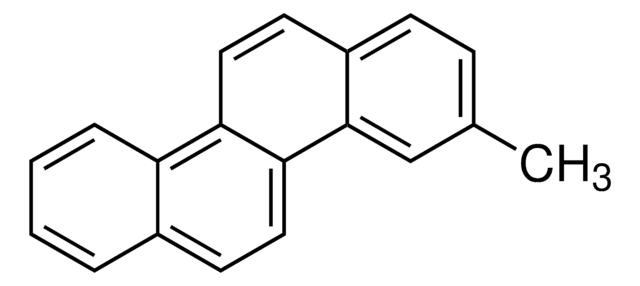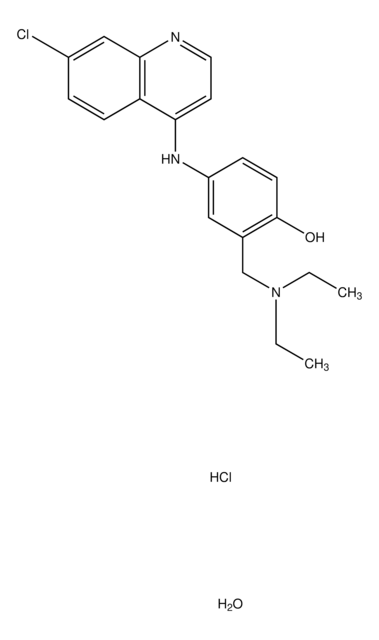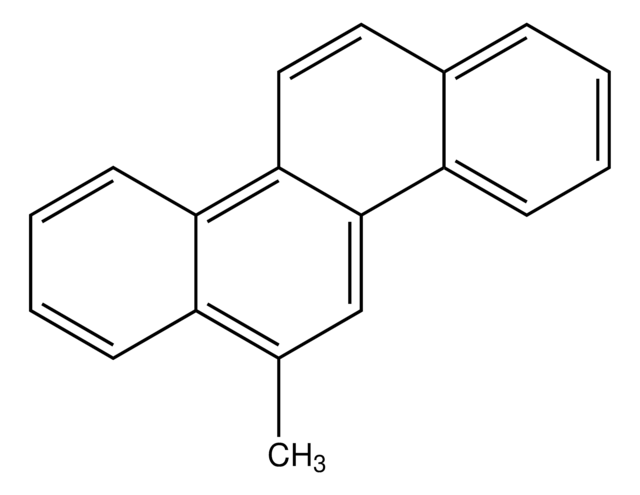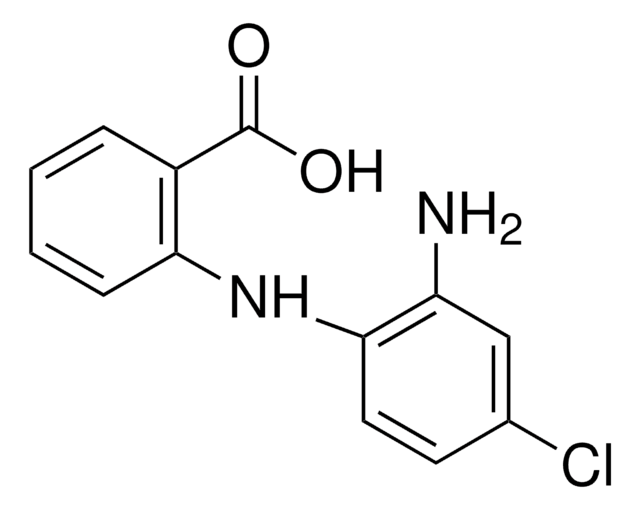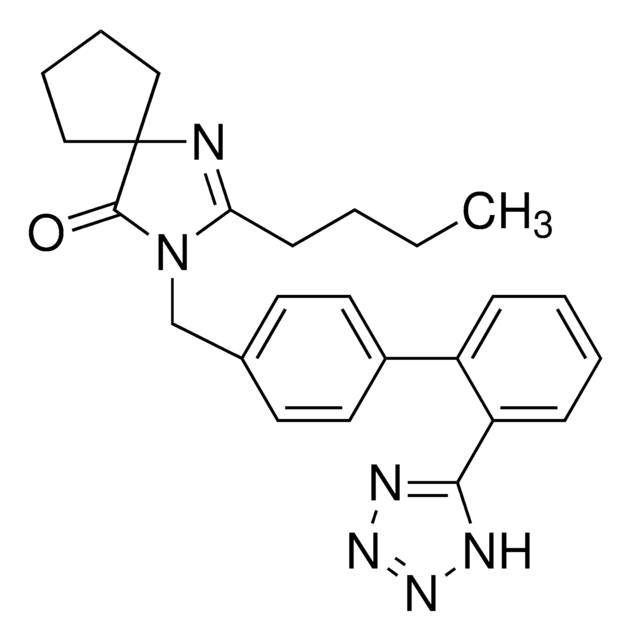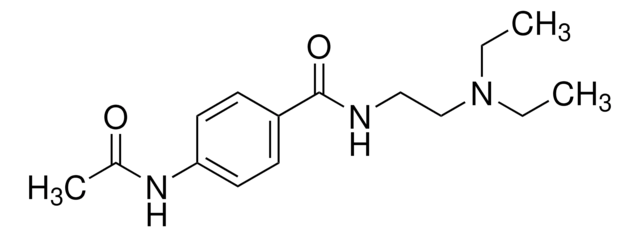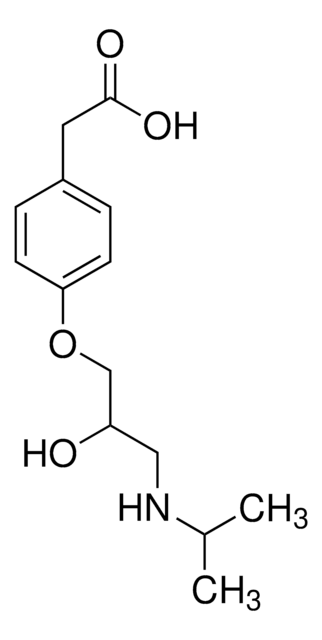BCR078R
2-Methylchrysene
BCR®, certified reference material
Sign Into View Organizational & Contract Pricing
All Photos(1)
About This Item
Empirical Formula (Hill Notation):
C19H14
CAS Number:
Molecular Weight:
242.31
Beilstein/REAXYS Number:
2258893
MDL number:
UNSPSC Code:
41116107
PubChem Substance ID:
NACRES:
NA.24
Recommended Products
grade
certified reference material
agency
BCR®
manufacturer/tradename
JRC
technique(s)
HPLC: suitable
gas chromatography (GC): suitable
format
neat
storage temp.
2-8°C
SMILES string
Cc1ccc2c(ccc3c4ccccc4ccc23)c1
InChI
1S/C19H14/c1-13-6-9-17-15(12-13)8-11-18-16-5-3-2-4-14(16)7-10-19(17)18/h2-12H,1H3
InChI key
PJVVBVYEMMJZCY-UHFFFAOYSA-N
General description
2-Methylchrysene is a methyl derivative of chrysene, belonging to the class of polycyclic aromatic hydrocarbons (PAHs), ubiquitously present in the environment. It is one of the contaminants in smoked food products.
Application
2-Methylchrysene may be used as certified reference material for the quantification of the analyte in soil samples and sediment samples using gas chromatography followed by mass spectrometric analysis.
Analysis Note
For more information please see:
BCR078R
BCR078R
Legal Information
BCR is a registered trademark of European Commission
Choose from one of the most recent versions:
Certificates of Analysis (COA)
Lot/Batch Number
It looks like we've run into a problem, but you can still download Certificates of Analysis from our Documents section.
If you need assistance, please contact Customer Support.
Already Own This Product?
Find documentation for the products that you have recently purchased in the Document Library.
The use of a classic lipid extraction method for simultaneous recovery of organic pollutants and microbial lipids from sediments
Fang C and Findlay HR
Journal of Microbiological Methods, 27(1), 63-71 (1996)
V M León et al.
Environmental science and pollution research international, 24(5), 4284-4300 (2015-05-12)
The influence of flash flood events on the input and distribution of polycyclic aromatic hydrocarbons (PAHs), polychlorinated biphenyls (PCBs), and organochlorinated pesticides (OCPs) in surface sediments from the Mar Menor lagoon were characterized in this study. These contaminants were analyzed
Occurrence and leachability of polycyclic aromatic compounds in contaminated soils: Chemical and bioanalytical characterization
Larsson M, et al.
The Science of the Total Environment, 622, 1476-1484 (2018)
Occurrence of polycyclic aromatic hydrocarbons in smoked cheese
Guillen DM and Sopelana P
Journal of Dairy Science, 87(3), 556-564 (2004)
Our team of scientists has experience in all areas of research including Life Science, Material Science, Chemical Synthesis, Chromatography, Analytical and many others.
Contact Technical Service